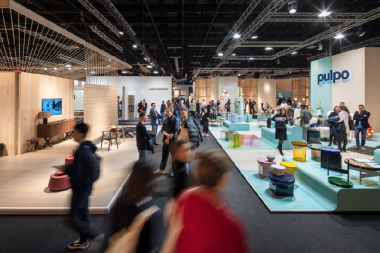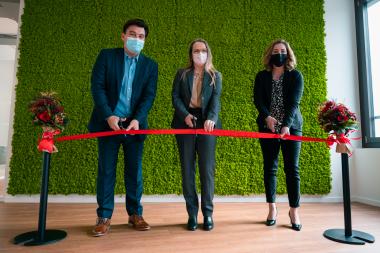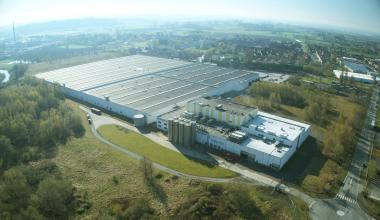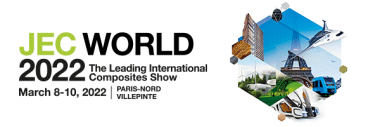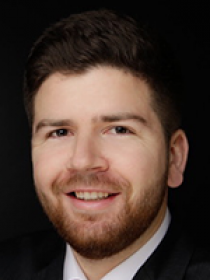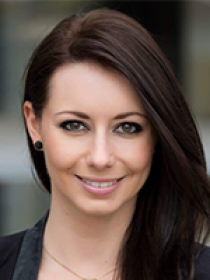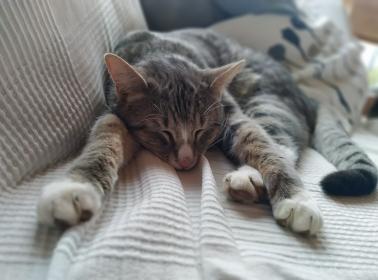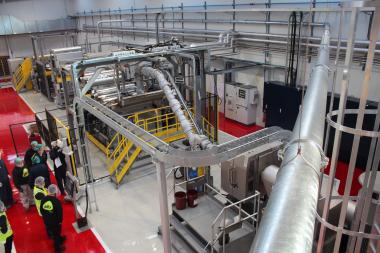Techtextil India: First post-lockdown edition with overwhelming responsive from industry
After three-days of product sourcing and business networking, Techtextil India 2021 in Mumbai concluded in a strong and positive note. The trade fair emerged as a crucial meeting place for the technical textile players to rebuild their supplier links, promote industry integration and engage in lucrative knowledge exchange.
The eighth edition of Techtextil India stood out to be a ground-breaking business platform for the technical textile sector to build a new and strong foundation in the new normal. The aim of the new edition was to promote industry unification and business recovery across the value chain of technical textiles.
The event held at Bombay Exhibition Centre was inaugurated by major dignitaries, including Shri Ajit Chavan, Secretary – Textiles Committee, Ministry of Textiles, Government of India. Over the course of its three buzzing days, the show garnered an attendance of 4,087 visitors drawn by live demonstration of latest products, technologies and innovations exhibited by over 150 technical textile brands on the show floor.
The event received an overwhelming response, reflecting industry’s keen interest to explore new developments and opportunities in technical textiles. In regards to the same, Mr Abhijit Kulkarni, President – Textile Engineering Group, A.T.E. India, stated: “It was the first and best physical show also on hybrid mode filled with enthusiastic buyers and customers who visited our booth and had very fruitful discussions with us. Several leading textile manufacturers visited our stalls, including: Strata Geosystems India, SKAPS Industries, Reliance Composites, Paramount Textiles, and Welspun, to name a few.”
Alok Masterbatches Pvt Ltd, Khosla Profile Pvt Ltd, ATE Group, Lucky International, Meera Industries Limited, Park Non-Woven Pvt Ltd, Sarex Chemicals, SICAM, Suntech Geotextile Pvt Ltd and Weavetech Engineers, were among the leading Indian companies exhibiting at the show.
The significance of the three-day fair was further elevated by the German pavilion. Technical textile manufacturers from Germany, such as Autefa Solution Germany GmbH, DILO Systems GmbH, Emtec Electronic GmbH, Georg Sahm GmbH & Co, Karl Mayer Verwaltungsgesellschaft mbH, Merz Maschinenfabrik GmbH and Oerlikon Barmag Zweigniederlassung der Oerlikon Textile GmbH & Co, displayed their latest technologies on the show floor, which garnered significant attention from the Indian buyers.
The first Digital Symposium was another highlight of Techtextil India 2021. The forum delved into a series of crucial topics in technical textiles discussing PLI schemes, FDI opportunities and policies, investment opportunities in Tamil Nadu, & New Investment Opportunities, Sustainable Technical Textiles and Global sustainable approach for Textiles with Antimicrobial Performance.
Concluding on a successful note, Techtextil India 2021 emerged as a platform of new beginnings for the technical textiles sector and for businesses trying to retain their shape and seeking momentum after the tough pandemic phase.
Messe Frankfurt HK














